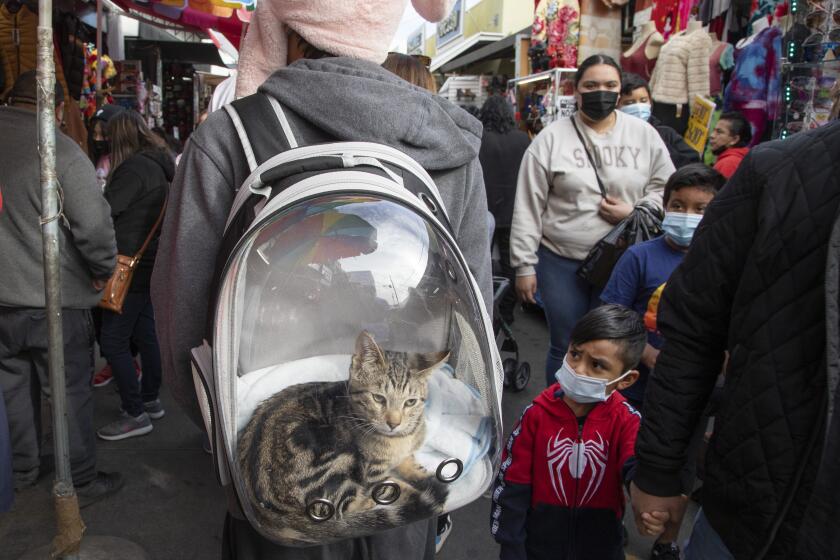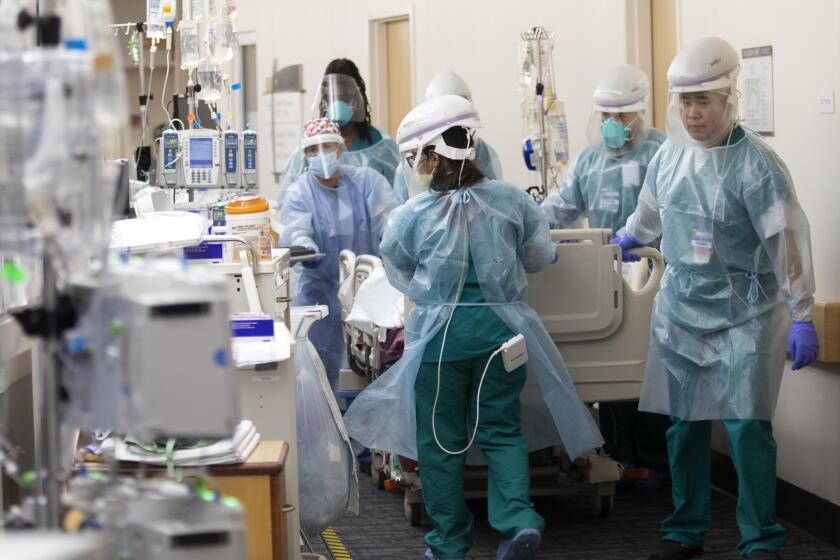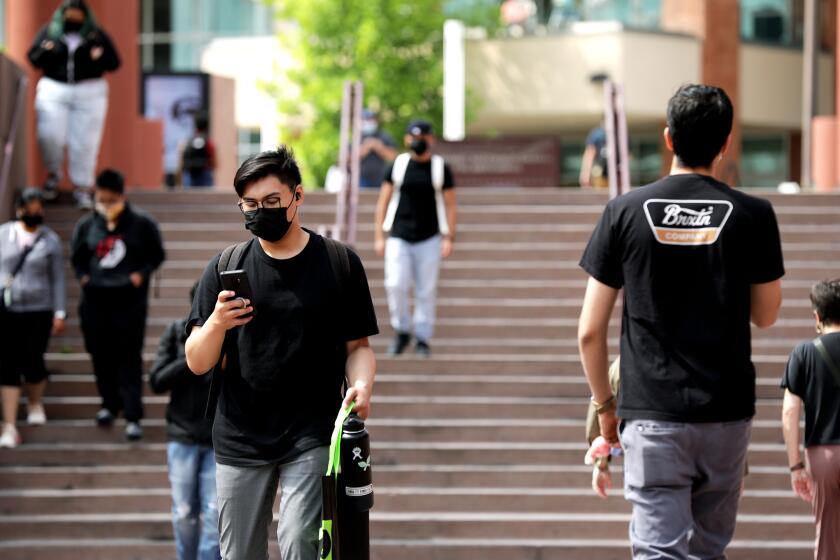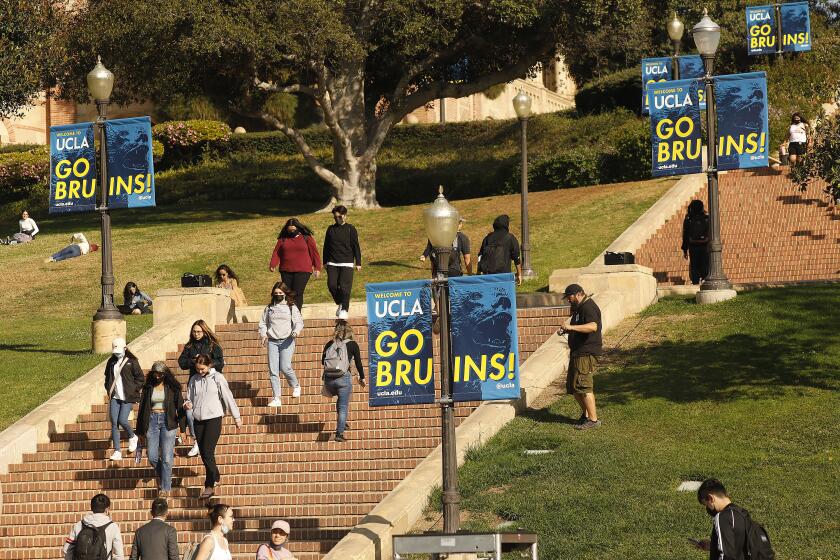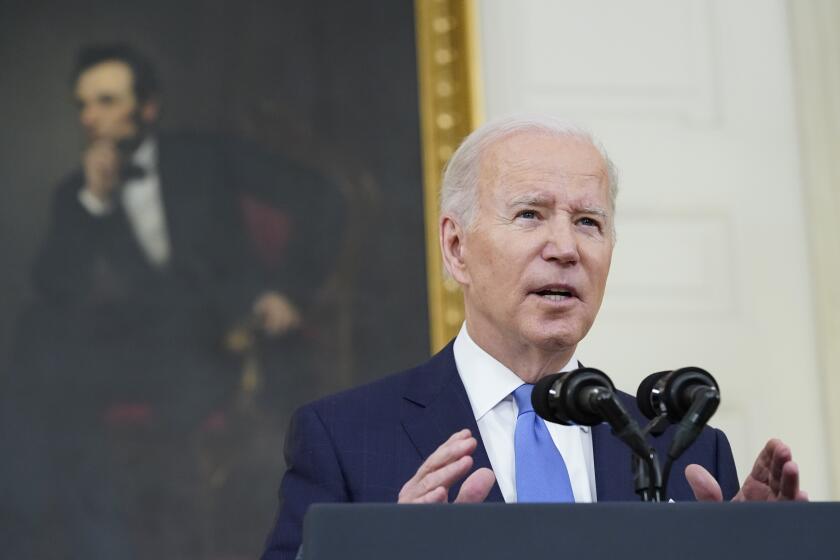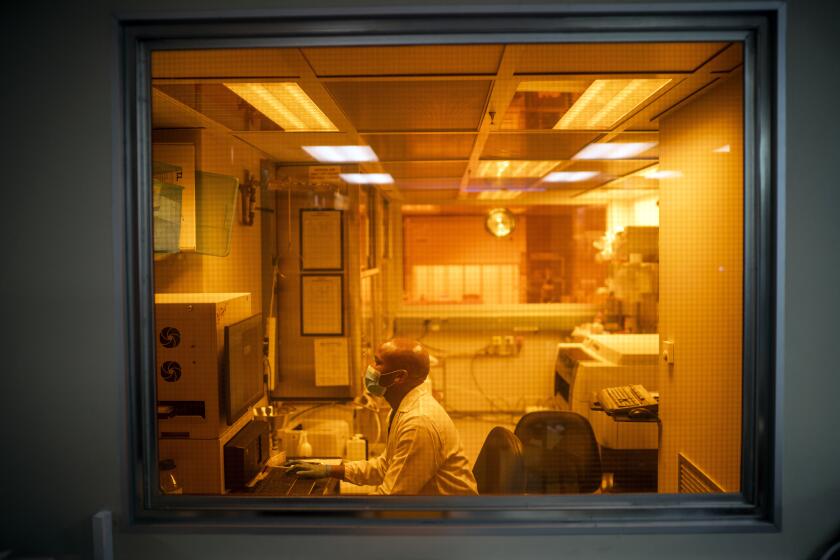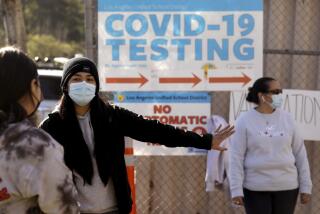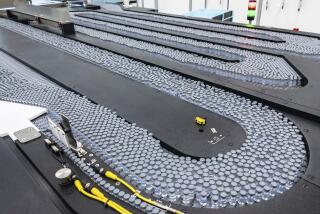California to distribute COVID tests to K-12 students as Omicron spreads through state
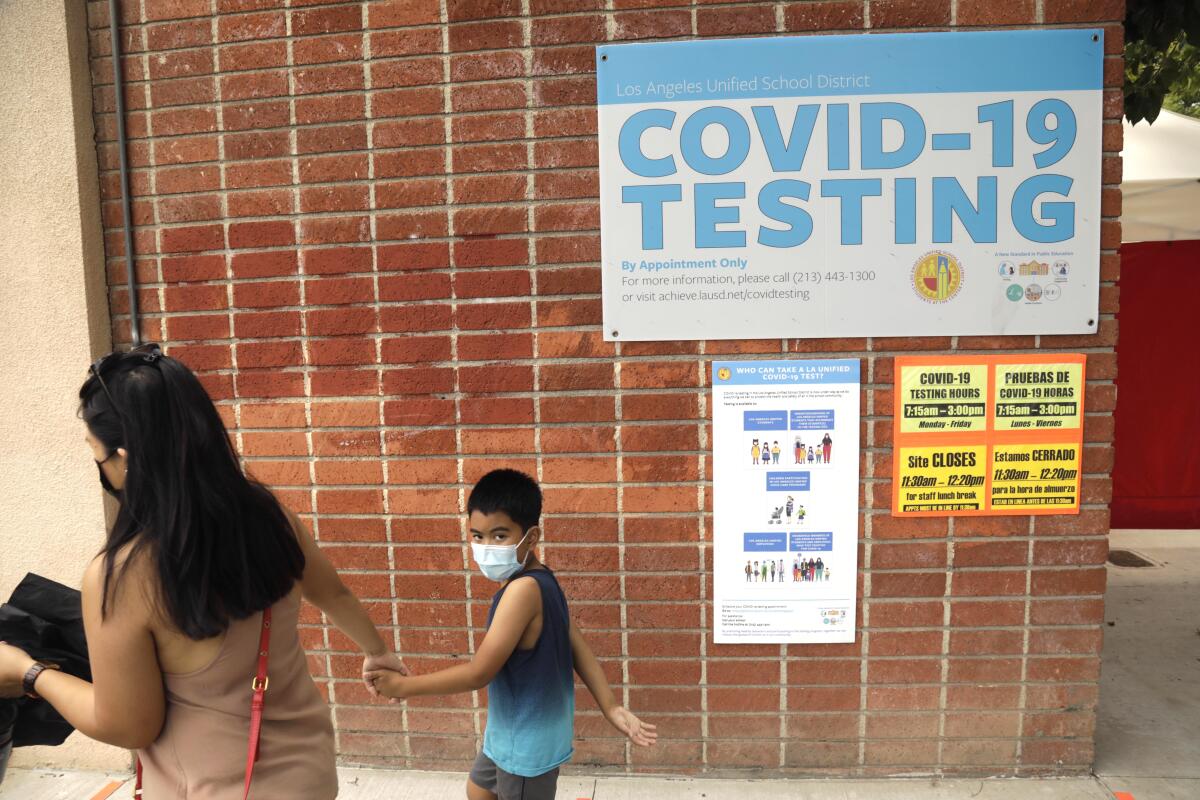
- Share via
Faced with the rapidly spreading Omicron variant of the coronavirus, state officials unveiled plans Wednesday to provide rapid tests for students in K-12 public schools and expand hours at busy screening sites.
Those efforts, along with a previously announced requirement that healthcare workers must receive a vaccine booster, are the latest steps aimed at repelling the highly mutated variant, which has spread rapidly nationwide since its arrival in the U.S. was first confirmed in San Francisco three weeks ago.
The Omicron variant has prompted some regions to reinstitute curfews or lockdowns, but no such measures are currently planned in Los Angeles County.
The new booster requirement applies to workers in healthcare and high-risk congregate settings, such as nursing homes. An estimated 2.5 million healthcare workers will be covered by the mandate, officials said.
Employees in those areas — who already are required to have completed their initial inoculation series — will need to be boosted by Feb. 1. Prior to that date, those who have not received the additional dose will be tested twice a week, Gov. Gavin Newsom said during a briefing Wednesday.
Officials said the mandate will protect both workers and the vulnerable populations they serve, as well as help keep healthcare staffing at levels needed to navigate a possible patient surge.
“We recognize now that just being vaccinated, fully vaccinated, is not enough with this new variant. And we believe it’s important to extend this requirement to getting that third dose, to getting boosted,” Newsom said.
When the Delta wave began during the summer, the Inland Empire fared far worse in hospitalizations than its coastal neighbors, such as Los Angeles County — and it never recovered.
California also has plans to furnish every public elementary, middle and high school student with one or two rapid tests as they return from winter break.
Newsom said California will order 6 million tests and send those to partners around the state.
“After our kids have enjoyed the holidays ... we want to make sure they come back in as good a shape as they left, meaning we want to make sure that we are testing our kids and preparing them to come back,” he said.
Newsom emphasized California’s commitment to keeping schools open for in-person instruction — a pledge reiterated in a joint statement his office released Wednesday morning from education-related organizations including the California State Parent Teacher Assn., California Teachers Assn., SEIU California, the state charter schools association and the California School Boards Assn.
“California schools have been open because of, not despite of, our priority on safety,” the statement said. “As we approach the new year, we reaffirm our shared commitment to one another, to our parents and to our students: to keep each other safe and to keep our classrooms open.”
All 23 Cal State campuses will require booster shots for students by the end of February.
Some school officials praised the governor’s action, including school board member Richard Tahvildaran-Jesswein, from Santa Monica-Malibu Unified, which has been testing students on a weekly basis. That effort, combined with the governor’s plan, “is the one-two punch that will provide our families with a high level of confidence in returning to school following holiday gatherings and travel,” he said.
In L.A. County, about a third of all students are in the Los Angeles Unified School District, which had hoped to scale back its intensive weekly testing program.
But the looming winter surge — and the district’s decision to postpone the deadline for all students to be vaccinated against COVID-19 — prompted a change of plans.
Through January, at least, L.A. Unified will continue weekly testing. While the district’s cost per test has been comparatively low, the scale of the program has resulted in enormous costs, and the governor’s announcement does not appear to offer any relief.
L.A. Unified has relied on the extremely accurate PCR test, with a typical turnaround time of 24 to 48 hours. Newsom said most of the state-provided kits would be antigen tests, which provide almost immediate results, although not with the same degree of accuracy.
It was not clear how soon the tests would reach schools and school districts. Some schools return as early as Jan. 3, while L.A. Unified goes back Jan. 10.
A spokesman for the governor said the tests would be distributed through established channels rather than mailed to families.
L.A. school board President Kelly Gonez welcomed the governor’s action, adding that “a critical part of the planning will be the distribution method for the tests, so they reach the students who need them most.”
“While other efforts are focused on mailing tests home, many of our families are highly mobile,” she said. “Our schools are a natural point for outreach and distribution for hard-to-reach populations.”
L.A. County Public Health Director Barbara Ferrer also said logistics could be a challenge.
“There are, of course, some limited options because students are not in school right now,” she said. “Many families are on vacation. And staff and administrators are on vacation. But the plan is a sound one: Get kits to those families that have children that will be returning to school — either close to the return to school or when they return to school so we can quickly test all of the students as they come back into the school environment.”
L.A. school board member Jackie Goldberg said the effort could boost the confidence of parents as well as health outcomes: “I think it might reassure many if they can do a home health test during this three-week vacation,” she said. “It also may get some who are infected, yet without symptoms, to get early, life-saving treatment.”
COVID booster shots will be required for UC students and staff, and chancellors are preparing for a possible return to remote-only classes after break.
Lynwood Unified Supt. Gudiel Crosthwaite wants the state to go further.
“I’d like to see a statewide effort to require a negative test result before kids and or adults return to school in January,” he said. “It pains me to know that people are still dying, despite the scientific achievements that we have available” because of “rampant misinformation.”
The availability of testing has become a pressing issue since the emergence of Omicron.
Since the variant can spread so easily, health officials say robust testing is key to alerting individuals when they need to stay home to avoid infecting others.
However, at-home rapid coronavirus tests have been flying off the shelves, leaving some residents empty-handed and prompting government officials to try to fill the gap.
President Biden warns that the Omicron variant of the coronavirus will result in more breakthrough infections among vaccinated Americans.
The Biden administration unveiled plans this week to buy 500 million at-home rapid tests that will be available for free starting next month.
And L.A. County has begun distributing 600,000 test kits to agencies serving communities hardest-hit by COVID-19.
To deal with potentially increased demand, Newsom said hours will be expanded at state-sponsored testing sites that have reached capacity.
State officials said the additional steps will help prepare California for what they’ve long worried could be a challenging winter.
Even before Omicron was identified, experts said the busy holiday season and colder weather would push gatherings and festivities into riskier indoor settings. Omicron has only heightened fears. The variant has spread rapidly and is now the dominant version of the coronavirus.
A fall in South Africa’s coronavirus caseload in recent days may signal that the country’s Omicron-driven surge has passed its peak, experts say.
Recent findings indicate that “this variant is about three times as likely to cause an infection as the Delta variant,” Ferrer said.
The University of Washington’s Institute for Health Metrics and Evaluation projects the Omicron surge will continue rising swiftly through December and into January, potentially peaking later next month or in early February. Despite the increase in cases, predictions indicate there will be fewer daily deaths than during last winter’s devastating peak, largely due to those who’ve been vaccinated and helped further by those who also have received a booster.
Officials stressed that preventive measures remain important for keeping people safe and schools open.
“By layering multiple levels of prevention and mitigation, including distancing, masking and testing, schools are able to provide safe learning environments for children,” said Debra Duardo, superintendent of the L.A. County Office of Education. “The addition of at-home testing options further support schools’ ability to identify cases and prevent transmission as students return to campus.”
Ferrer said Wednesday it is not yet known whether Omicron may result in less severe illness than other variants. Data are especially thin regarding Omicron’s effect on the unvaccinated. Regardless, she said, Omicron cases could overwhelm local hospitals.
Others echoed her warning.
“Even though you may not get as sick from Omicron, and you may not be hospitalized, you could give it to someone else,” state Sen. Nancy Skinner (D-Berkeley) told reporters Wednesday. “No one deserves to be infected because we weren’t smart and we weren’t careful.”
Times staff writer Taryn Luna contributed to this report.
More to Read
Sign up for Essential California
The most important California stories and recommendations in your inbox every morning.
You may occasionally receive promotional content from the Los Angeles Times.
